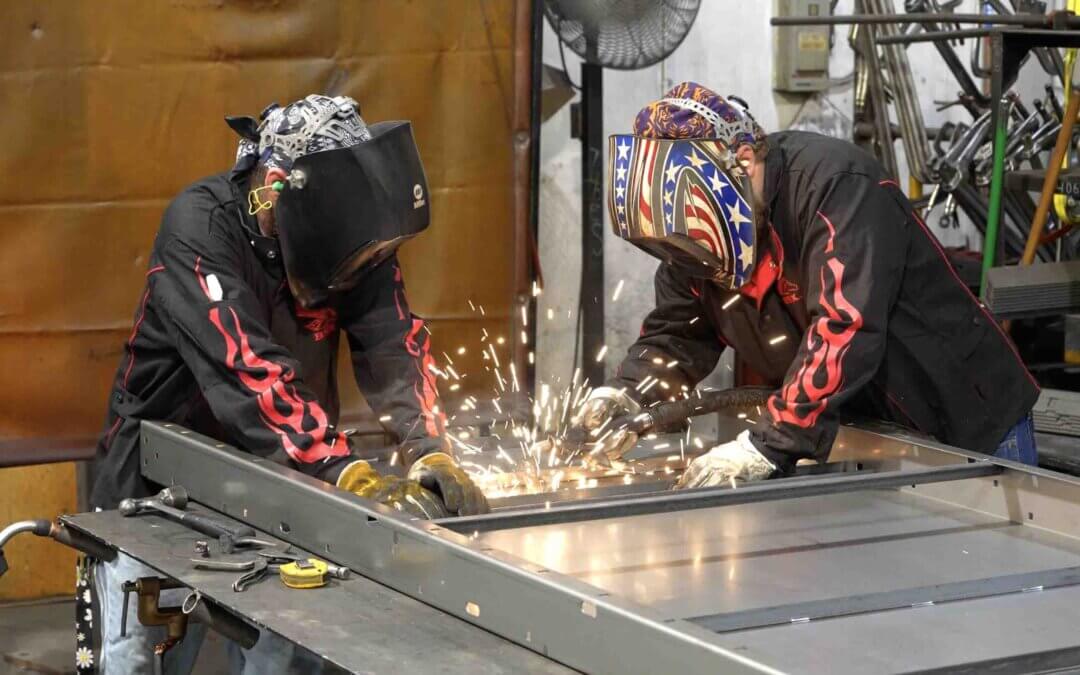When you think of the manufacturing industry, the first thing that comes to mind might be massive machines, intricate production lines, or innovative products. While all these are crucial elements to an efficient manufacturing plant, there are also many other components and positions that are essential to manufacturing. A position that often goes unnoticed is welding. These skilled professionals play a pivotal role in the manufacturing process, ensuring that the structural integrity of products and machinery is maintained.
Welding is a process that involves the joining of two or more metal parts by heating the surfaces until they melt and fuse together. Welders are skilled professionals who use a variety of tools and techniques to weld metal parts in various industries, such as manufacturing, construction, and engineering. In this blog, we will discuss the benefits of being a welder and the essential skills required to become a successful welder.
The quality of a weld is paramount in manufacturing. Welders play a crucial role in ensuring that products meet the highest standards of safety, durability, and functionality. Through rigorous inspections, they identify potential weaknesses, defects, or flaws in the welding process, guaranteeing that the final product is of the highest quality. Their attention to detail helps prevent catastrophic failures, keeping workers and end-users safe.
The Chief team understands that the quality of welding is an area that cannot be compromised. Therefore, Chief’s safety team and welding supervisors provide on-the-job training that is ongoing year after year. One of our supervisors, Steve Vasicek, provides his insights into the role and the training that is provided at Chief: https://youtu.be/fmJa1ezc7ZE
The welding career at Chief is a highly rewarding career that has far-reaching benefits.
Benefits of being a welder:
- High demand for welders: There is a high demand for welders in various industries due to the increasing need for construction and manufacturing projects worldwide. According to the Bureau of Labor Statistics (BLS), the employment of welders, cutters, solderers, and brazers is projected to grow by 3 percent from 2020 to 2030.
- High earning potential: Welders can earn a good income, especially if they specialize in a particular type of welding. According to the BLS, the median annual wage for welders, cutters, solderers, and brazers was $45,190 in May 2020.
- Job satisfaction: Welders have the satisfaction of creating something tangible with their skills. Welders can see the result of their hard work when they look at the finished product, which can be a source of pride and satisfaction.
- Opportunities for advancement: Welders can advance in their careers by specializing in specific types of welding, such as underwater welding or robotic welding. They can also become supervisors or managers of welding teams.
Skills needed to be a successful welder:
- Safety awareness: Welders need to be aware of safety precautions when working with welding equipment and materials. They must follow safety procedures and wear appropriate protective gear to avoid injury.
- Attention to detail: Welding requires precision and attention to detail. Welders need to be able to follow blueprints, diagrams, and instructions carefully to ensure that the finished product meets the required specifications.
- Physical stamina: Welding can be a physically demanding job. Welders need to be able to stand for long periods, lift heavy equipment and materials, and work in confined spaces.
- Hand-eye coordination: Welders need to have excellent hand-eye coordination to operate welding equipment accurately.
- Technical skills: Welders need to have a good understanding of welding techniques, equipment, and materials. They need to be able to read and interpret technical documents, such as blueprints and schematics.
- Problem-solving skills: Welders need to be able to identify and solve problems that arise during the welding process. They must be able to troubleshoot issues and come up with creative solutions.
April Neville, a welder for Chief Agri, also provides her insight into the welding role here at Chief. Take a moment to hear her story: https://youtu.be/zSs74BN79ao
Not only is welding a rewarding career that offers a range of benefits, including high demand, high earning potential, job satisfaction, and opportunities for advancement, but Chief also ensures that our welders understand that they are integral to the team. There are a lot of skills to becoming a welder, but the most important attributes Chief looks for are people who are hardworking, willing to learn, and have a passion for what they do. From there, our trained experts can provide the knowledge and skills that someone needs to flourish as a welder in our plants. If you have a passion for building things and enjoy working with metal, welding could be an excellent career choice for you.

